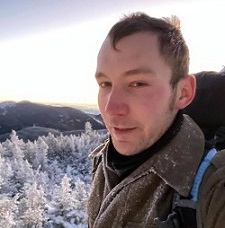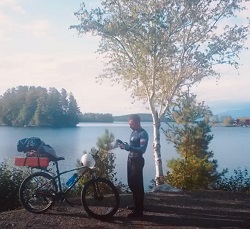Three years ago, a family member and I stopped talking over politics. Someone posted an article on Facebook saying that liberals were liars, evil, at war with America. This was a week after January 6th, when Donald Trump incited his followers to attack the Capitol. Nerves were worn a little thin. You might say it was the last straw.
Since then, people have asked, “How could you let something as trivial as politics end a relationship?” The question makes me crazy. We didn’t argue over tax reform. We argued over white supremacists and neo-Nazis marching in the crowd. I was terrified—the sitting president had encouraged an armed uprising, and we weren’t sure the country would survive. Here was a member of my own family, calling me the enemy.
Did I take it too personally? You bet. Do I regret it? Not an ounce. In fact, I stayed quiet too long. I regret not speaking up sooner. All my life, I’ve been afraid to offend people who said vaguely racist things. I made excuses for them. It was the way they grew up. At least they used to lower their voices when making “jokes,” but since 2016, it’s become okay to say the quiet part out loud.
 |
| Graeme Lockwood, 1980 Witt graduate |
Except that Americans are the ones making death threats, holding the rest of us hostage.
Over the last 8 years, judges, jurors, government workers and poll volunteers have had to go into hiding, thanks to threats of shooting, bombing or lynching. This is how Donald Trump deals with his enemies—by telling his followers to “take their country back.”
You know what? This is my country too. It has a multitude of problems, but none of them can be solved by demonizing minorities, calling them “hordes” that have descended upon us, stealing our resources, spreading disease. These are people who sailed across oceans and walked across deserts in search of a better life. They’re some of the hardest workers I know. I live in Florida, whose immigrant population is 22%. That’s twice the national average. Immigrants are our doctors, teachers, roofers, waiters, produce pickers. They’re critical to our economy. Trump is threatening to deport 20 million of them, “the largest deportation in history.” He talks about building detention camps.
 |
| 1903 cartoon entitled “The Unrestricted Dumping Ground,” showing Italian immigrants as vermin, Socialists, “the Mafia” (by Louis Dalrymple, Judge magazine) |
Does this sound even vaguely familiar? We have laws in place to arrest and deport criminals. Statistically, immigrants are less likely to commit crimes. Think of it—to give up your home, your way of life, to come here with nothing and risk being sent back? It makes no sense. But then, who cares about making sense? The goal is to make us hate someone, so we won’t pay attention to the fact that the people spreading the lies have no real plans to help us.
Personally, the crimes I’ve experienced in my life—robbery, assault, malpractice, fraud—were carried out by white American males. The man who raped my friend was white. The pedophiles who abused kids in my family were white. Most serial killers are that same demographic. If I were a racist, I’d assume that all white men are prone to crime. But I’m not. I judge people by their actions, not by the color of their skin.
So if you tell me you’re voting for Donald Trump because of his border or economic policies, I’ll assume you’re okay with all the hateful things he’s said over the years—about veterans, women, immigrants, the disabled, people of color—and that somewhere, deep down, you agree. Is that harsh? I always wondered how millions of Germans let a hate-filled man rise to power, why they didn’t speak up and stop him. I think it means they were kind of on board with what he was saying. J.D. Vance once feared that his running mate might be “America’s Hitler.” According to his chief of staff, retired Marine general John Kelly, Trump suggested that “Hitler did some good things.”
You’ll probably think I’m exaggerating here, but when people show you who they are, believe them.






















